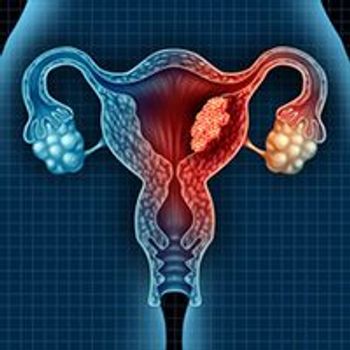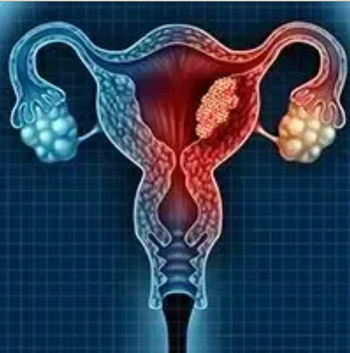
Frontline treatment with olaparib plus abiraterone/prednisone led to a PFS benefit vs olaparib or abiraterone/prednisone alone in BRCA1/2– or ATM–altered mCRPC.

Your AI-Trained Oncology Knowledge Connection!


Senior Editor, OncLive®
Hayley Virgil heads OncLive's feature article efforts and specializes in social issues and equality in oncology. Prior to joining the company in early 2020, she worked as an editor in numerous industries, including media, marketing, hospitality, and computer science, and freelanced in subjects such as history, culture, and the natural sciences.

Frontline treatment with olaparib plus abiraterone/prednisone led to a PFS benefit vs olaparib or abiraterone/prednisone alone in BRCA1/2– or ATM–altered mCRPC.

The use of tafasitamab-cxix, lenalidomide, rituximab, and acalabrutinib in the first-line setting induced high responses in patients with newly diagnosed diffuse large B-cell lymphoma, with responders deriving benefit from subsequent treatment with cyclophosphamide, doxorubicin, vincristine, and prednisolone.

Patients with relapsed/refractory follicular lymphoma experienced durable responses when treated with tisagenlecleucel (Kymriah) in the phase 2 ELARA study (NCT03568461), according to data presented at the 2023 ASH Annual Meeting.

The use of diagnostic CT-based planning lowered the median time in treatment centers for patients with cancer who underwent diagnostic CT scan and palliative radiation therapy.

Induction daratumumab, carfilzomib, lenalidomide, and dexamethasone followed by consolidation double transplant sustained efficacy and safety in patients with high-risk, newly diagnosed multiple myeloma.

Findings from a systematic review of several observational studies reveal that increasing disparities in survival outcomes within hematologic malignancies can be primarily attributed to 5 social determinants of health: lack of access to health insurance, treatment at a non-academic facility, low income or education level, and unmarried status.

The BET inhibitor BMS-986158 combined with ruxolitinib led to robust spleen volume reduction with acceptable tolerability in patients with myelofibrosis. When the BET inhibitor was combined with fedratinib, the safety profile was also determined to be manageable.

Sacituzumab govitecan demonstrated an overall survival benefit vs physician's choice of treatment in patient with pretreated, endocrine-resistant, hormone receptor–positive, HER2-negative metastatic breast cancer.

Liposomal irinotecan plus 5-fluorouracil/leucovorin and oxaliplatin generated statistically significant and clinically meaningful overall survival and progression-free survival benefits compared with gemcitabine plus nab-paclitaxel in treatment-naïve patients with metastatic pancreatic ductal adenocarcinoma.

The combination of lenvatinib plus pembrolizumab produced deep, durable tumor responses in both all-comer and mismatch repair–proficient (pMRR) populations of patients with advanced endometrial cancer, according to data from the phase 3 Study 309/KEYNOTE-775 trial.

The use of an individualized starting dose and dose modifications due to treatment-emergent adverse effects did not impact the efficacy of maintenance niraparib in patients with newly diagnosed ovarian cancer, irrespective of BRCA mutation status.

Administration of hyperthermic intraperitoneal chemotherapy with cytoreductive surgery did not have a negative impact on health-related quality of life compared with cytoreductive surgery alone in patients with newly diagnosed ovarian cancer, according to findings from a phase 2 trial.

At extended follow-up, nivolumab monotherapy showed improved disease-free survival, non-urothelial tract recurrence-free survival, and disease-specific survival vs placebo in patients with resected, high-risk muscle-invasive urothelial carcinoma.

Circulating tumor DNA could serve as an ideal biomarker to assess early response in patients with advanced colorectal cancer due to its short half-life compared with other tumor biomarkers, and it could enable the use of adaptive clinical study designs in the future.

Talquetamab elicited overall response rates of higher than 70% when administered in weekly or every-other-week schedules in heavily pretreated patients with relapsed or refractory multiple myeloma.

Two separate doses of single-agent camizestrant monotherapy improved progression-free survival vs standard-of-care fulvestrant in patients with estrogen receptor-positive, HER2-negative advanced breast cancer.

First-line rucaparib maintenance therapy improved progression-free survival vs placebo in patients with newly diagnosed ovarian cancer, according to disease risk subgroup analyses from the phase 3 ATHENA–MONO study.

Although the combination of androgen deprivation therapy, abiraterone acetate, and prednisolone showed a clinically meaningful 7-year improvement in overall survival, AAP plus enzalutamide is not recommended in patients with metastatic hormone-sensitive prostate cancer.

The combination of pembrolizumab and etoposide maintained benefits in overall survival (OS) and progression-free survival vs etoposide plus placebo in patients with previously untreated extensive-stage small cell lung cancer.

First-line treatment with tremelimumab, durvalumab, and chemotherapy elicited overall survival and progression-free survival benefits in patients with metastatic nonsquamous cell non–small cell lung cancer harboring STK11, KEAP1, and KRAS mutations.

An overall survival trend in favor of adjuvant atezolizumab over best supportive care was observed in patients with stage II to IIIA resected non–small cell lung cancer with a PD-L1 tumor cell (TC) expression of at least 1%, with a clinically meaningful OS trend noted in those with a PD-L1 TC expression of 50% or higher.

The addition of nivolumab to chemotherapy provided progression-free survival and overall survival benefits compared with chemotherapy alone in patients with stage IIIA/B non–small cell lung cancer.

Four distinct subgroups, each associated with distinctive signaling pathways, microenvironments, and clinical-pathologic futures, were discovered in a population of patients with MET exon 14 skipping non–small cell lung cancer.

The use of a platinum-based chemotherapy and anti–PD-1 regimen was supported by differences in upregulated antigen processing, T-cell receptor coexpression, and lymphocyte infiltration pathways in patients with or without pathologic complete responses who had stage IIIA resectable non–small cell lung cancer.

Sugemalimab appeared to be safe and effective when used as consolidation therapy for patients with unresectable stage III non–small cell lung cancer (NSCLC) who did not have disease progression following concurrent chemoradiation or sequential chemoradiation.

The utilization of lisocabtagene maraleucel in patients with relapsed/refractory large B-cell lymphomas produced durable outcomes at a 2 years follow-up.

Axicabtagene ciloleucel resulted in a longer overall survival benefit in patients with relapsed or refractory large B-cell lymphoma who did not have event-free survival events at months 12 and 24 vs those who experienced events at these time points.

MEDI5752 treatment led to a dose-dependent increase in peripheral T-cell proliferation and encouraging antitumor activity in patients with advanced solid tumors.

SCC244, a highly selective MET inhibitor, demonstrated durable efficacy in patients with non–small cell lung cancer who harbored MET exon 14 skipping mutations.

Maintenance selinexor monotherapy was found to improve progression-free survival over placebo in patients with advanced or recurrent endometrial cancer.

Published: April 6th 2021 | Updated:

Published: November 7th 2020 | Updated:

Published: June 16th 2021 | Updated:

Published: February 16th 2021 | Updated:

Published: April 13th 2021 | Updated:

Published: September 24th 2020 | Updated: